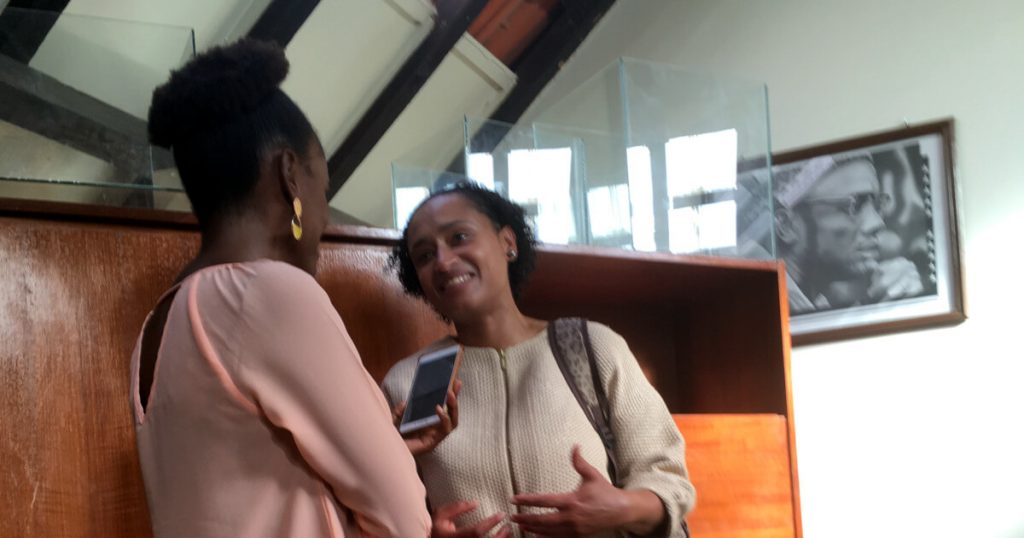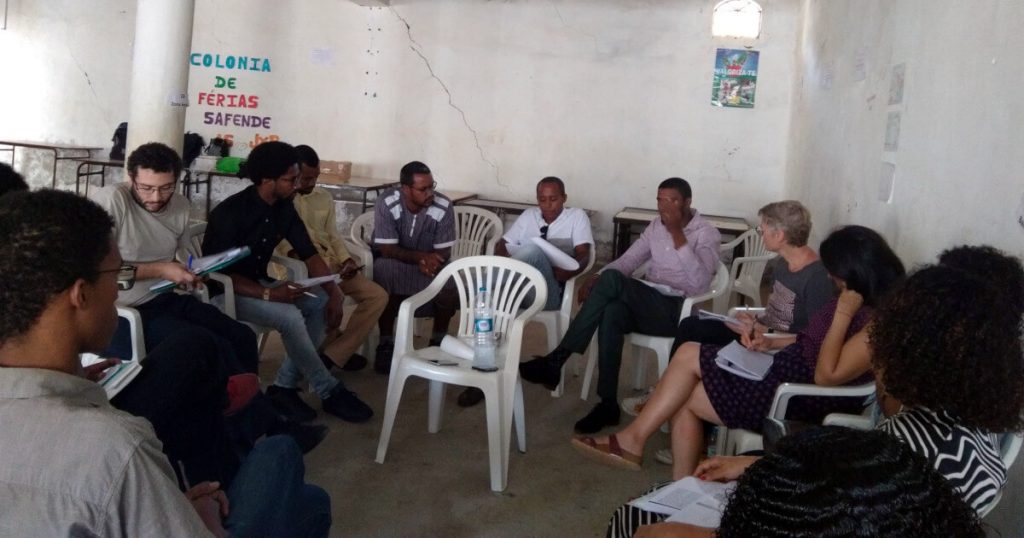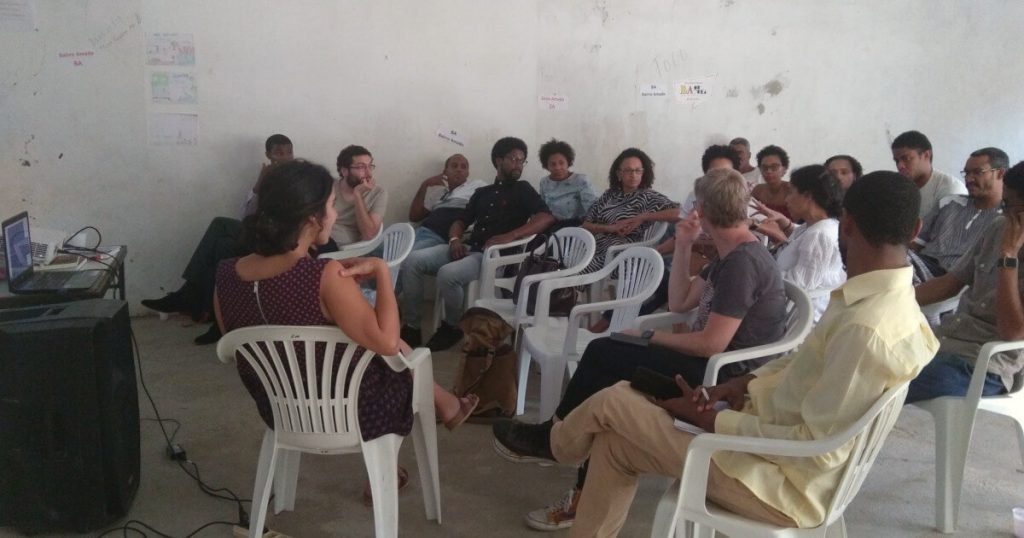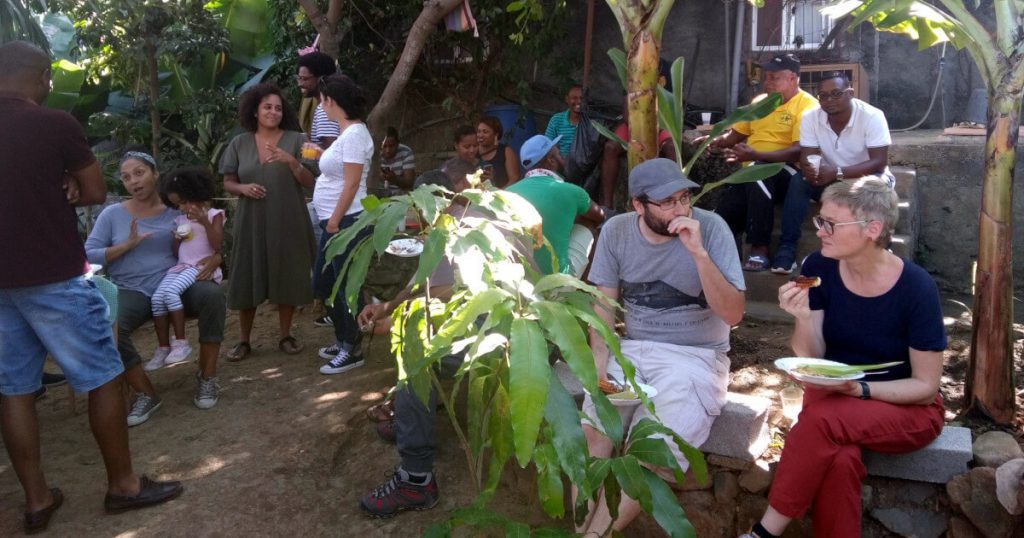IHC team visits Cape Verde
Dec 19, 2019 | News
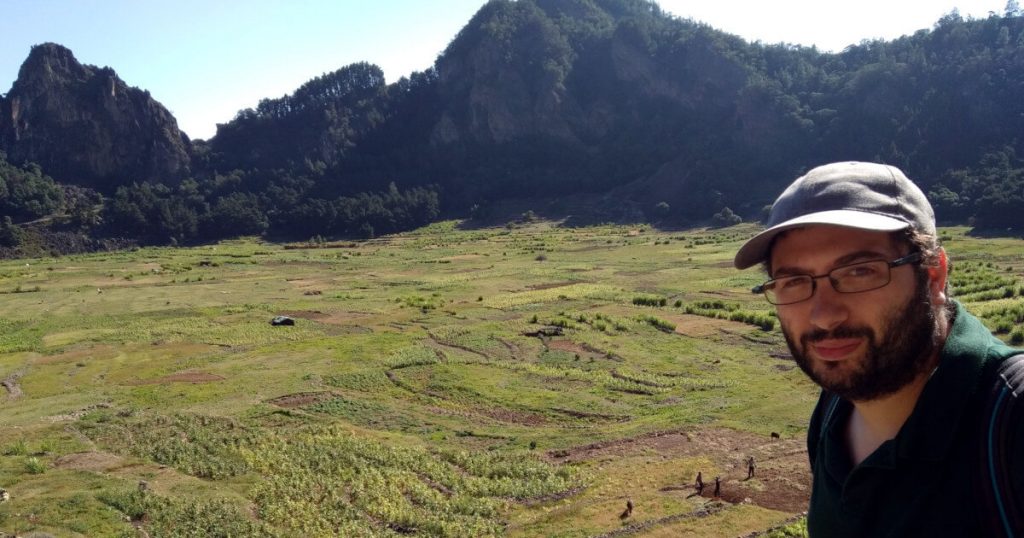
As the project “Amílcar Cabral: da História Política às Políticas da Memória” [Amílcar Cabral, from Political History to Politics of Memory] approaches its end, the team has been holding a series of meetings about the historiography of Amílcar Cabral. Following a series of initiatives in Guinea-Bissau in May this year, they went to Cape Verde in November for a series of events, in which, in addition to coordinator Rui Lopes, participated the researchers Aurora Almada e Santos, Branwen Gruffydd Jones, Catarina Laranjeiro, and Víctor Barros.
On 21 November, the day began with a teeming workshop for teachers at Armando Napoleão Fernandes High School in Assomada (Santiago Island), where Aurora Santos and Víctor Barros discussed the History syllabus in Cape Verde. The teachers’ participation was intense, including a productive conversation about Guinea-Bissau’s relative absence in the Cape Verdean national narrative. That afternoon, a round table discussion took place at the Amílcar Cabral Foundation in Praia, entitled “Novas dimensões no estudo da luta pela independência da Guiné-Bissau e Cabo Verde” [New dimensions in the study of the struggle for independence of Guinea-Bissau and Cape Verde], where the project team presented their latest research results. The meeting, introduced by the foundation’s president, Pedro Pires, received press attention, resulting in reports broadcasted on Cape Verde Television (with an interview of Aurora Santos) and on Cape Verde Radio (with an interview of Rui Lopes).
Moving from the center of the capital to its periphery, on 23 November the team held two events in the neighborhood of Safende, in collaboration with the Associação Comunitária Amigos de Safende. In the morning, there was a seminar about Amílcar Cabral’s writing “Analysis of Some Types of Resistance“, which was attended by enthusiastic local academics and activists. In the afternoon, there was a screening of the film “Return of Amílcar Cabral” (1976), with comments by Catarina Laranjeiro, followed by a long conversation with the audience, where the plurality and complexity of Cabral’s memory in Cape Verde was manifest.
In addition to taking the opportunity to explore the archives of the Amílcar Cabral Foundation (which has generously exchanged books with the IHC) and interviewing participants of the liberation struggle and the spread of Cabral’s work, the project members enjoyed the local hospitality, delicious cuisine and cultural richness (coincidentally, the Festival Internacional de Cinema da Praia was taking place), and were especially grateful for the availability and efficiency of the co-organizers of the events, in particular Osvaldino Monteiro, Tatiana Neves, Bernardino Gonçalves and Redy Wilson Lima. According to Rui Lopes, they “returned confident that there is still much to study and discuss regarding this aspect of Cape Verde’s historical memory”.
Other news
-
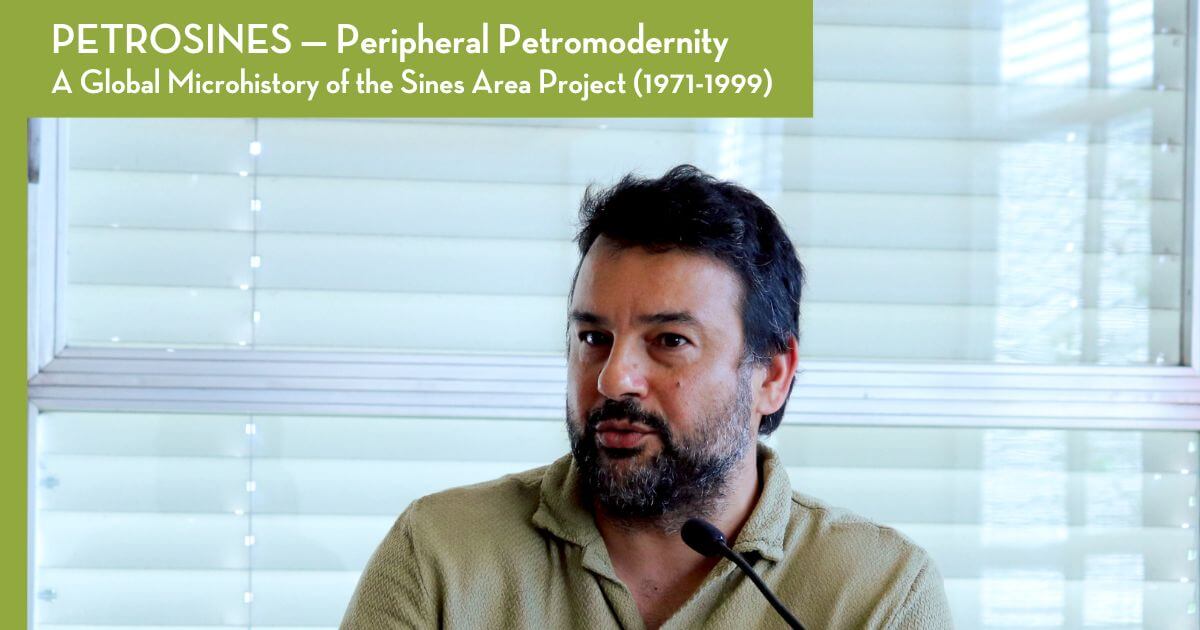 The PETROSINES project was one of the six History projects that received funding from the FCT
The PETROSINES project was one of the six History projects that received funding from the FCT -
 Statement from the team of the project FILMASPORA
Statement from the team of the project FILMASPORA -
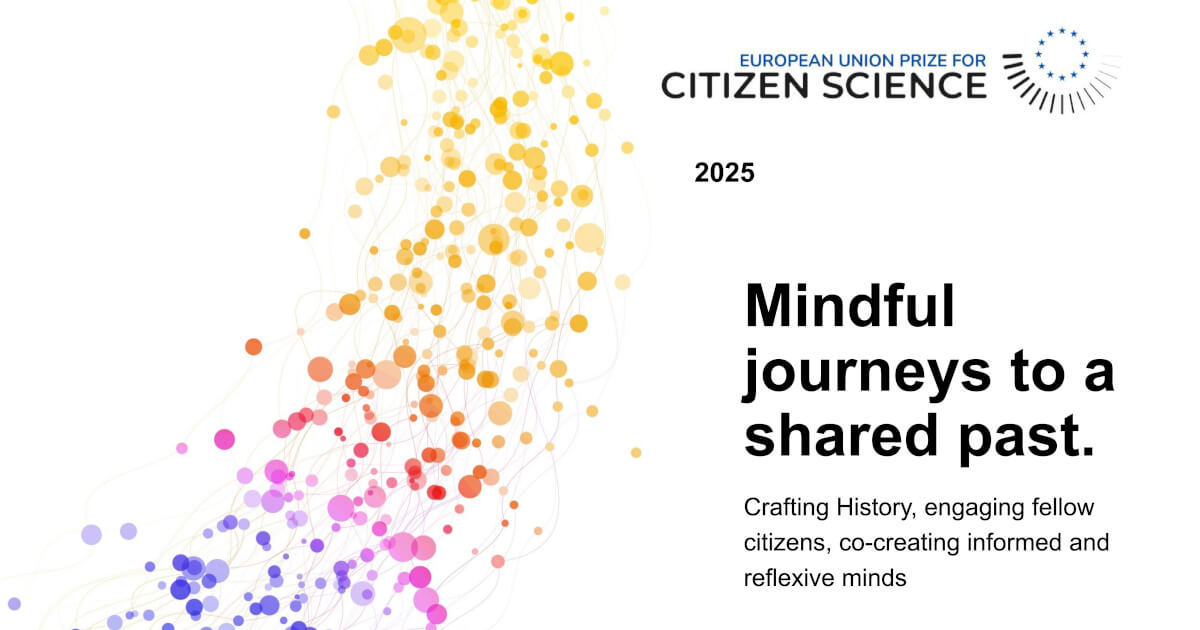 VINCULUM's application received an Honourable Mention in the European Union Prize for Citizen Science 2025
VINCULUM's application received an Honourable Mention in the European Union Prize for Citizen Science 2025 -
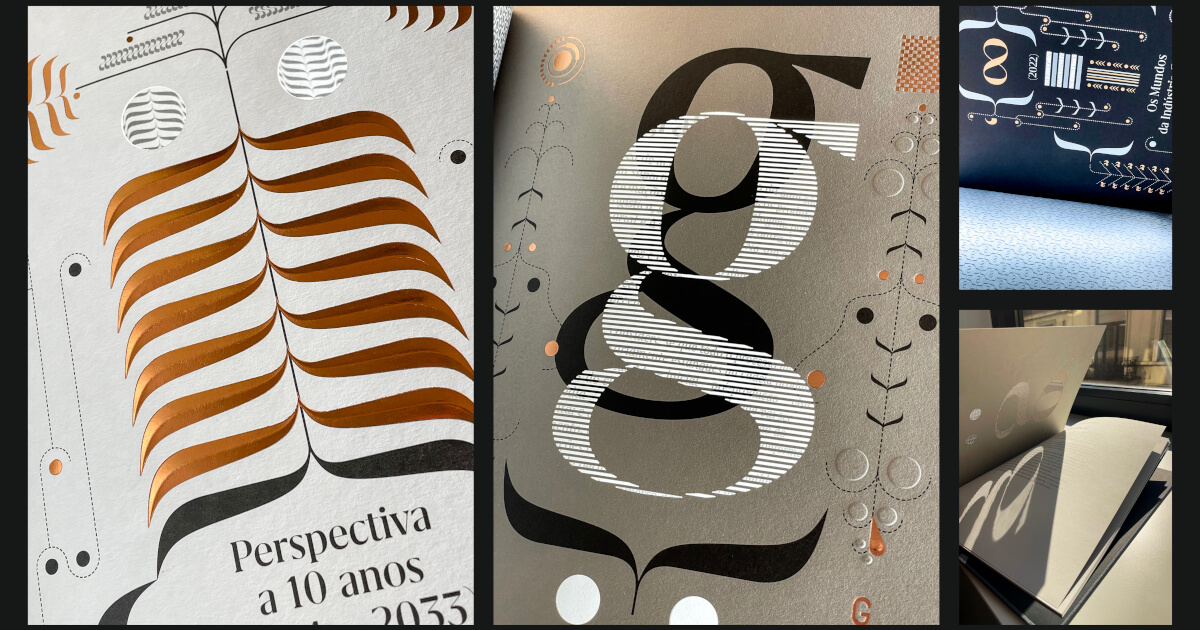 The book on the history of the national printing industry was the Gold Winner in the Editorial Design —...
The book on the history of the national printing industry was the Gold Winner in the Editorial Design —... -
 The paper by Quintino Lopes, Francisco de Lacerda, and Ana Simões, was the 2025 winner.
The paper by Quintino Lopes, Francisco de Lacerda, and Ana Simões, was the 2025 winner. -
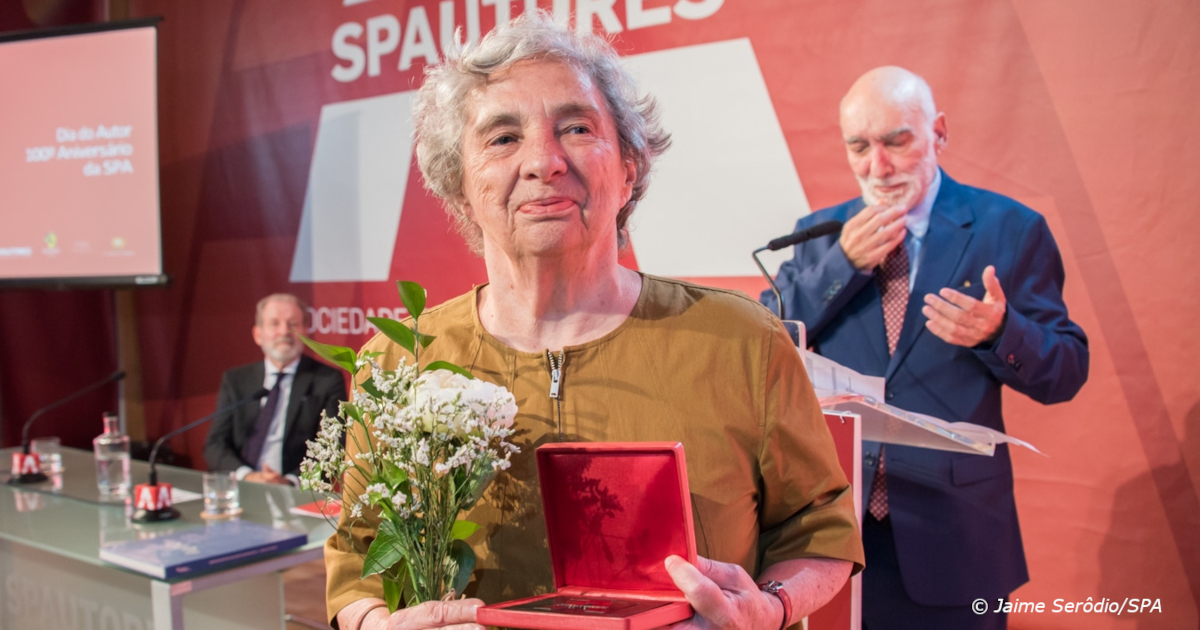 Irene Flunser Pimentel was one of the personalities honoured ‘for her outstanding contribution to culture’.
Irene Flunser Pimentel was one of the personalities honoured ‘for her outstanding contribution to culture’. -
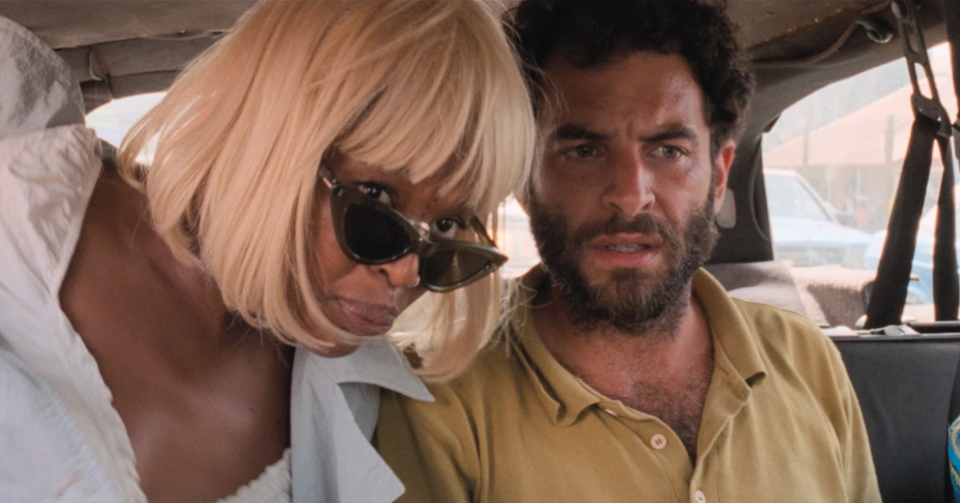 Miguel Carmo and José Filipe Costa worked on the film ‘I Only Rest in the Storm’
Miguel Carmo and José Filipe Costa worked on the film ‘I Only Rest in the Storm’ -
 ‘Angola: Saberes em movimento’ at the Frei Manuel do Cenáculo National Museum
‘Angola: Saberes em movimento’ at the Frei Manuel do Cenáculo National Museum -
 The PhD thesis was awarded the Francisco Canais Rocha Prize for studies on the labour movement
The PhD thesis was awarded the Francisco Canais Rocha Prize for studies on the labour movement -
 Catarina Laranjeiro and Inês Vieira Gomes are the curators of the exhibition
Catarina Laranjeiro and Inês Vieira Gomes are the curators of the exhibition -
 The first fiction feature by José Filipe Costa will be premiered in Portugal at the Indie Lisboa
The first fiction feature by José Filipe Costa will be premiered in Portugal at the Indie Lisboa -
 'Before Being Independence, It Was a Struggle For Liberation' recently opened
'Before Being Independence, It Was a Struggle For Liberation' recently opened -
 Civil Society Forum on Combating Antisemitism and Fostering Jewish Life
Civil Society Forum on Combating Antisemitism and Fostering Jewish Life -
 Joana Dias Pereira is a member of IFPH's Steering Committee
Joana Dias Pereira is a member of IFPH's Steering Committee -
 SMS — Shared Memories of Solidarity was selected for funding by the FCT
SMS — Shared Memories of Solidarity was selected for funding by the FCT -
 Community on the Zenodo platform, EU Open Research Repository, and a set of books on OAPEN
Community on the Zenodo platform, EU Open Research Repository, and a set of books on OAPEN -
 Collaborative museology with Kanawayuri Marcello Kamaiurá and Auakamu Kamayurá
Collaborative museology with Kanawayuri Marcello Kamaiurá and Auakamu Kamayurá -
 Eça de Queirós in Egypt and the Opening of the Suez Canal
Eça de Queirós in Egypt and the Opening of the Suez Canal -
 Conference and exhibition at the Santos Rocha Municipal Museum, Figueira da Foz
Conference and exhibition at the Santos Rocha Municipal Museum, Figueira da Foz -
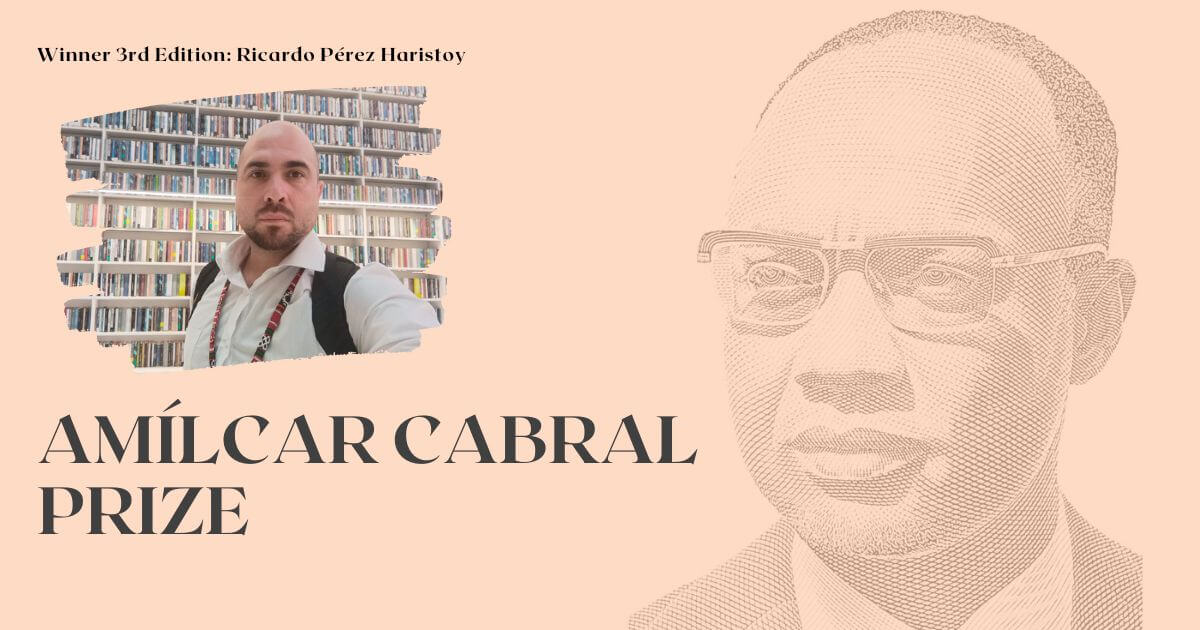 The winner of the Amílcar Cabral Prize will be in Lisbon next week
The winner of the Amílcar Cabral Prize will be in Lisbon next week
Search
Opportunities
Marie Skłodowska-Curie Postdoctoral Fellowships
Deadline (IHC): 1 June 2025
News
Ricardo Noronha leads team to study “petromodernity”
Jul 7, 2025
The PETROSINES project was one of the six History projects that received funding from the FCT
Statement about the demolitions in the Bairro de Santa Filomena
Jul 3, 2025
Statement from the team of the project FILMASPORA
VINCULUM recognised with European Union Prize for Citizen Science
Jun 20, 2025
VINCULUM’s application received an Honourable Mention in the European Union Prize for Citizen Science 2025
CONTACTS
WORKING HOURS




